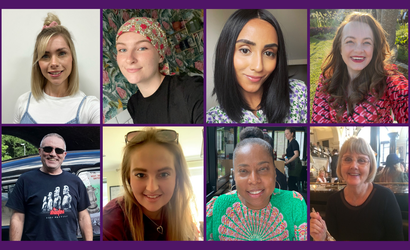Our campaigns
We work with healthcare professionals, parliament and our blood cancer community to help raise awareness of blood cancer and bring us closer to the day where no one dies of blood cancer or its treatment.

UK Blood Cancer Action Plan
Our Action Plan reveals shocking data about blood cancer survival in the UK. We need healthcare professionals and those affected by blood cancer to turn our set of recommendations into a reality.

Raise blood cancer's profile

Blood Cancer Awareness Month
All Party Parliamentary Group on Blood Cancer
Blood Cancer Awareness Month
Blood Cancer Awareness Month is held every September to raise the profile of blood cancer, which doesn't get the attention of other cancers
Raise the profile of blood cancer
Find out how Blood Cancer UK is raising the profile of blood cancer.
The All Party Parliamentary Group on Blood Cancer (APPGBC)
Blood Cancer UK run the secretariat for the All-Party Parliamentary Group on Blood Cancer on behalf of the Chair, Henry Smith MP (Con, Crawley) and the Vice Chair, Colleen Fletcher (MP, Lab Coventry North East).
UK Blood Cancer Action Plan
Our Action Plan reveals shocking data about blood cancer survival in the UK. We need healthcare professionals and those affected by blood cancer to turn our set of recommendations into a reality.
